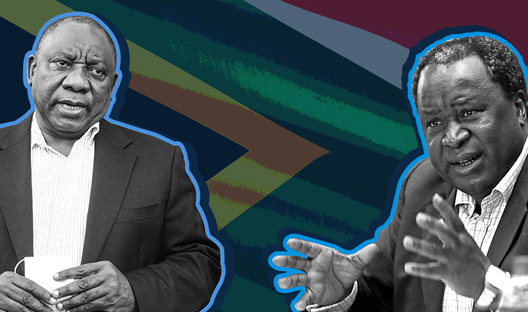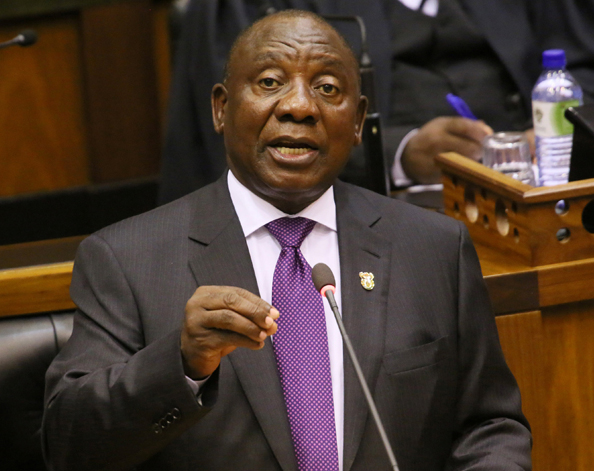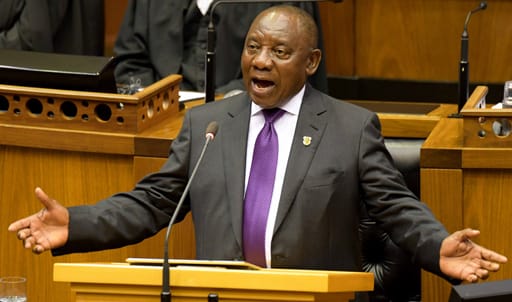Receive Focus insights straight to your inbox
Listen to podcast
Investec Chief Economist on what SONA means for SA economy
As in past years, the SONA listed many areas SA needs to address, although more detail was provided than historically, and the tone was certainly one of ‘can do.’ However, SA has been beset by multiple plans, frameworks, proposals and strategies over the years.
To keep the positive momentum in business sentiment, which if sufficiently supported can translate into faster growth and investment, and so employment, President Ramaphosa now needs to change tack post-SONA compared to in previous years.
Failure to deliver both on the pro-private sector business and investment stated intentions, and to eradicate state capture, corruption and poor governance would see business confidence flag, and then subside down to the previous close-to-a-decade suppressed state, taking the hope of fast economic growth and employment down with it.

Get all Investec's insights on the latest Budget Speech and SONA
Our economists, tax experts, personal finance and investment experts unpack what the latest fiscal measures mean for income, savings and daily expenses of individuals and businesses.
Joint sitting Debate on the State of The Nation Address
– Parliament of the Republic of South Africa
President's reply to the SONA debate
– Parliament of the Republic of South Africa
– Parliament of the Republic of South Africa
SONA in summary
Under the new President, Cyril Ramaphosa, 2018’s State of the Nation (SONA) address focused on recognising the need to repair SA’s key institutions and previous competitive strengths, ranging from SARS, SOEs and other areas in the public sector to the mining sector, with its business-unfriendly recent Charter. Eradicating corruption also topped the list.
Rapid economic growth was placed firmly on the agenda, to lift and drive employment and so reduce poverty and inequality, as the need for a substantial strengthening in business confidence and so private sector investment was formally recognised.
These key issues were broken down into:
- The need for a strong capable state
- Cost reduction for businesses and consumers
- The need for reindustrialisation and a revitalised mining sector
- Faster growth in tourism
- Improved infrastructure
- Better support for small businesses
- Marked reduction in unemployment.

We will finalise work on a permanent public sector-led hybrid model, which will allow a set of public and private sector service providers to offer beneficiaries maximum choice, access and convenience.
IN QUOTES: Ramaphosa's key promises
Some of the key promises made by President Ramaphosa at SONA include:
1. Re-look the state size and structure
President Ramaphosa said, “Growth, development and transformation depend on a strong and capable state. It is critical that the structure and size of the state are optimally suited to meet the needs of the people and ensure the most efficient allocation of public resources. We will, therefore, initiate a process to review the configuration, number and size of national government departments.”
2. Convening a Jobs Summit
“One of the initiatives will be to convene a Jobs Summit within the next few months to align the efforts of every sector and every stakeholder behind the imperative of job creation. The summit will look at what we need to do to ensure our economy grows and becomes more productive, that companies invest on a far greater scale, that workers are better equipped, and that our economic infrastructure is expanded.
3. Holding an Investment Conference
“We will organise an Investment Conference in the next three months, targeting both domestic and international investors, to market the compelling investment opportunities to be found in our country.”
Ramaphosa on land expropriation

"We are determined that expropriation without compensation should be implemented in a way that increases agricultural production, improves food security and ensures that the land is returned to those from whom it was taken under colonialism and apartheid."
4. Reducing poverty and unemployment through a “public sector-led hybrid model”
The President highlighted as key issues the need for the support social welfare delivers, along with increased delivery of school infrastructure, NHI and a national minimum wage, transformation, land redistribution, land expropriation without compensation and repairing government finances.
“This means that as we pursue higher levels of economic growth and investment, we need to take additional measures to reduce poverty and meet the needs of the unemployed. We will finalise work on a permanent public sector-led hybrid model, which will allow a set of public and private sector service providers to offer beneficiaries maximum choice, access and convenience.”
5. Improving the position of black professionals, women and communities
“We will improve our capacity to support black professionals, deal decisively with companies that resist transformation, use competition policy to open markets up to new black entrants and invest in the development of businesses in townships and rural areas. Radical economic transformation requires that we fundamentally improve the position of black women and communities in the economy, ensuring that they are owners, managers, producers and financiers.”
6. Acceleration of land redistribution programme
“We will accelerate our land redistribution programme not only to redress a grave historical injustice but also to bring more producers into the agricultural sector and to make more land available for cultivation. We are determined that expropriation without compensation should be implemented in a way that increases agricultural production, improves food security and ensures that the land is returned to those from whom it was taken under colonialism and apartheid.”
How the market responded
Financial markets have appreciated Ramaphosa’s weekend SONA address, with the rand reaching R11.58/USD, R14.28/EUR and R16.23/GBP, and the R186 at 8.11%, while the JSE is at 59 122 and foreigners have been net purchasers of R43.3bn worth of SA equities.
The next crucial event for SA will be the Budget, on Wednesday this week (21st February 2018), as SA holds its breath to see how severe tax increases will be while rating agencies will also judge the sovereign on its ability to cut back on expenditure and so debt projections. With the need for a streamlined, capable state, public service sector remuneration costs could reduce compared to previous fiscal projections, which is key given that it is a main expenditure item.
Reducing the size of the state and tripling the size of the private business sector through business supportive strategies, and transformation, through growth and substantial additional employment, is the only sustainable method to eradicate poverty and so inequality and reduce unemployment to single-digits in the longer-term.
READ MORE: Scope of SONA and Budget to dictate whether rand heads north or south
Topics of discussion
About the author

Annabel Bishop
Chief Economist of Investec Ltd
Annabel holds an MCom Cum Laude (Economics and econometrics) and has worked in the macroeconomic, risk, financial market and econometric fields, among others, for around 25 years. Working in the economic field at Investec, Annabel heads up a team, which focusses on the macroeconomic, financial market and global impact on the domestic environment. She authors a wide range of in-house and external articles published both abroad and in South Africa.
Subscribe to Investec's podcasts on market and economy moves

Listen to regular interviews with experts from across the Investec group. Our channel is accessible wherever you currently listen to your podcasts.

Listen to each podcast individually or subscribe to get new episodes as they become available.




